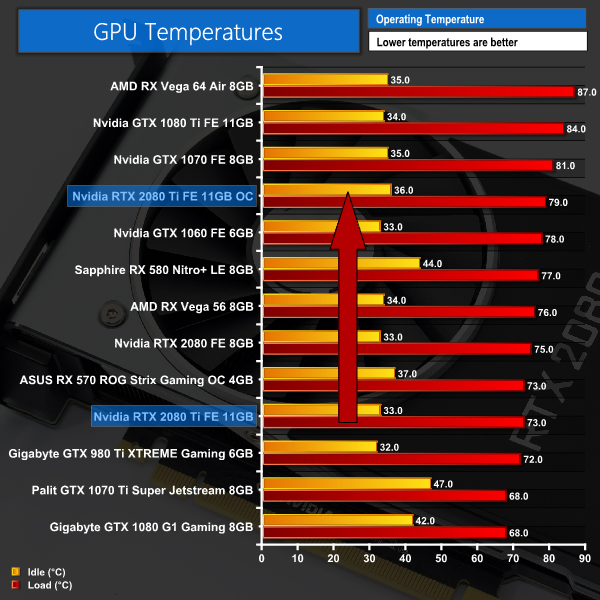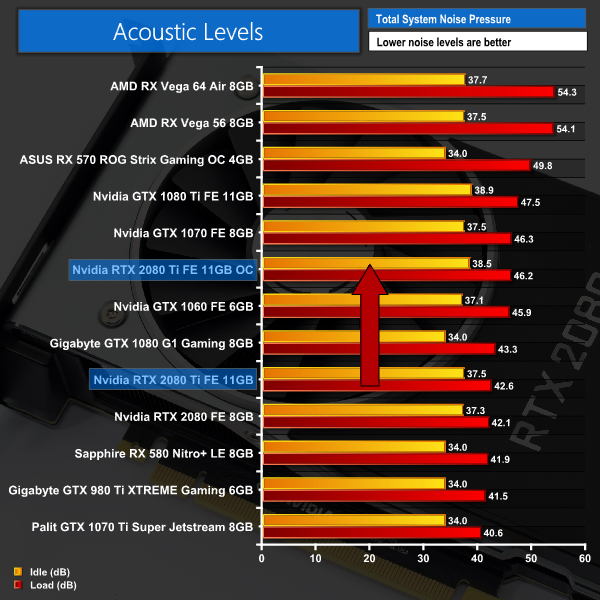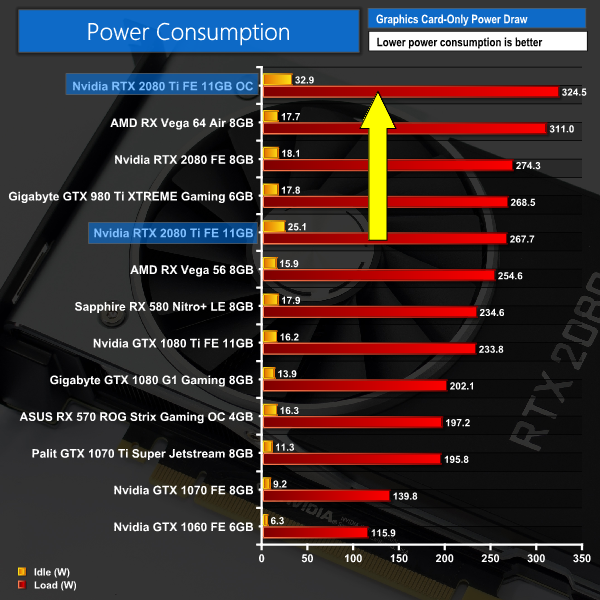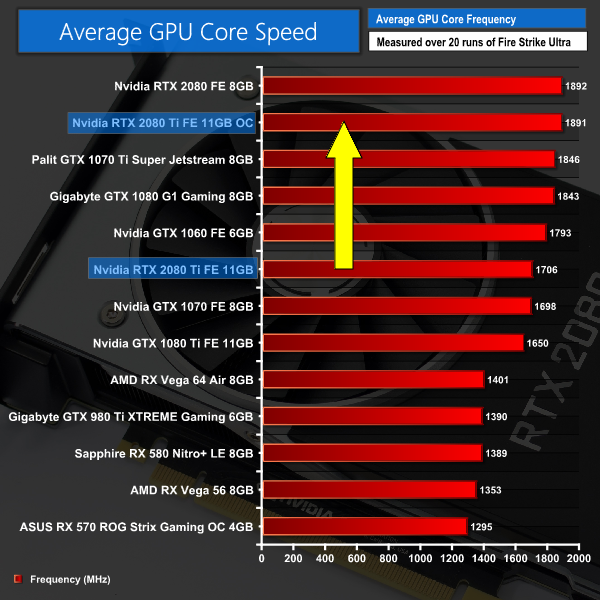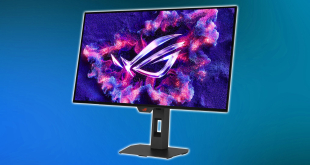Here, we take a further look at the impact of our overclock, looking at the increased temperatures, acoustics, power draw, and lastly, the effect had on the average clock speed.
Temperatures
Acoustics
Power consumption
Average clock speed under load
Overview
As expected, we see increases in noise levels, core temperatures and power consumption as a result of our overclock. The GPU still only peaked at 79C, though, which is excellent for a reference card – while its noise peak of 46dB is again nothing to be concerned with considering that is with a hefty overclock.
Average GPU frequency didn't quite break past 1900MHz, but we are still seeing a huge real-world frequency increase compared to stock settings. There's definitely big potential for some significant overclocks with the RTX 2080 Ti.
 KitGuru KitGuru.net – Tech News | Hardware News | Hardware Reviews | IOS | Mobile | Gaming | Graphics Cards
KitGuru KitGuru.net – Tech News | Hardware News | Hardware Reviews | IOS | Mobile | Gaming | Graphics Cards


